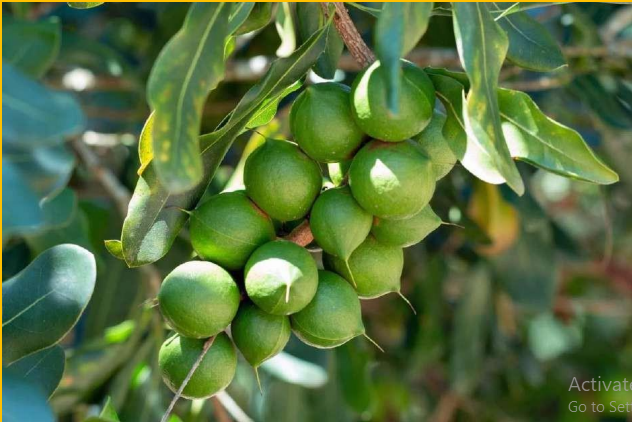Macadamia Nuts in Uganda
Macadamia nuts are a type of tree nut known for their rich, buttery flavor and smooth texture. They are often used in baking, cooking, or enjoyed as a snack on their own.
Macadamia nuts thrive in regions with a warm, subtropical climate and well-drained soil. While Uganda’s climate and soil conditions are generally suitable for growing macadamia nuts, the specific regions where they grow best may vary. Areas with moderate rainfall and elevations between 1,000 to 2,000 meters above sea level are considered favorable for macadamia cultivation. These conditions can be found in several parts of Uganda, including central, eastern, and western regions.
Project Objectives for Growing Macadamia Nuts in Uganda
- Establishing macadamia nut orchards and promoting sustainable cultivation practices.
- Increasing the production and quality of macadamia nuts for local and international markets.
- Providing training and resources to local farmers to support macadamia nut cultivation.
- Developing a value chain for macadamia nuts, including processing, packaging, and marketing.
- Contributing to the economic development of the region through increased agricultural productivity and income generation.
Impact and Outcomes of Macadamia Nuts Growth in Uganda
Economic Empowerment:
Macadamia nut cultivation has the potential to provide a sustainable source of income for local farmers and communities, thereby contributing to poverty reduction and economic development in Uganda.Employment Opportunities:
The expansion of macadamia nut production can create employment opportunities along the value chain, including farming, processing, and marketing, contributing to job creation in rural areas.Diversification of Agriculture:
Introducing macadamia nut cultivation can help diversify Uganda’s agricultural sector, reducing reliance on traditional crops and expanding opportunities for export markets.Environmental Benefits:
Macadamia nut trees offer environmental benefits such as soil conservation, carbon sequestration, and biodiversity enhancement.Market Access and Trade:
The successful growth of macadamia nuts in Uganda can lead to increased trade opportunities both domestically and internationally, contributing to potential foreign exchange earnings.
Conclusion of the Macadamia Nuts Growth Initiative in Uganda
The conclusion of the macadamia nuts growth initiative by MK Youth Initiative Foundation could highlight the following points:
Achievement of Project Objectives:
Assessing the success of objectives like establishing macadamia nut orchards, providing farmer training, and developing a value chain.Impact on Local Communities:
Evaluating the socioeconomic effects on local communities, including income generation, employment opportunities, and overall economic empowerment.Environmental Sustainability:
Considering the environmental impact of macadamia nut cultivation, including soil health, biodiversity, and the long-term sustainability of agricultural practices.Market Access and Trade Opportunities:
Reflecting on how the initiative has expanded market access for Ugandan macadamia nuts and its potential contributions to trade and economic growth.






